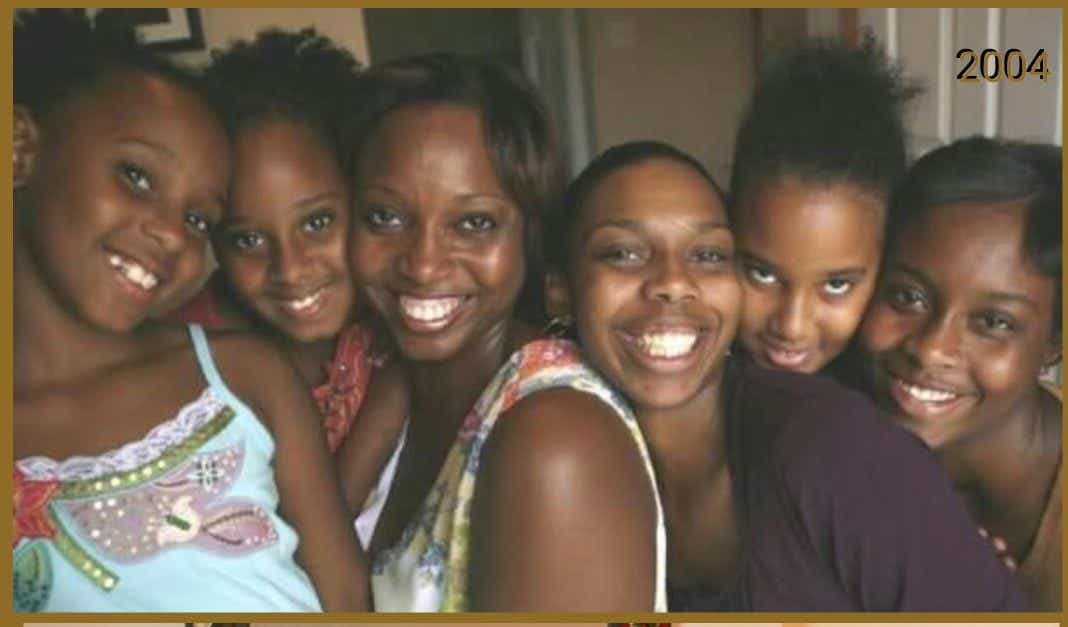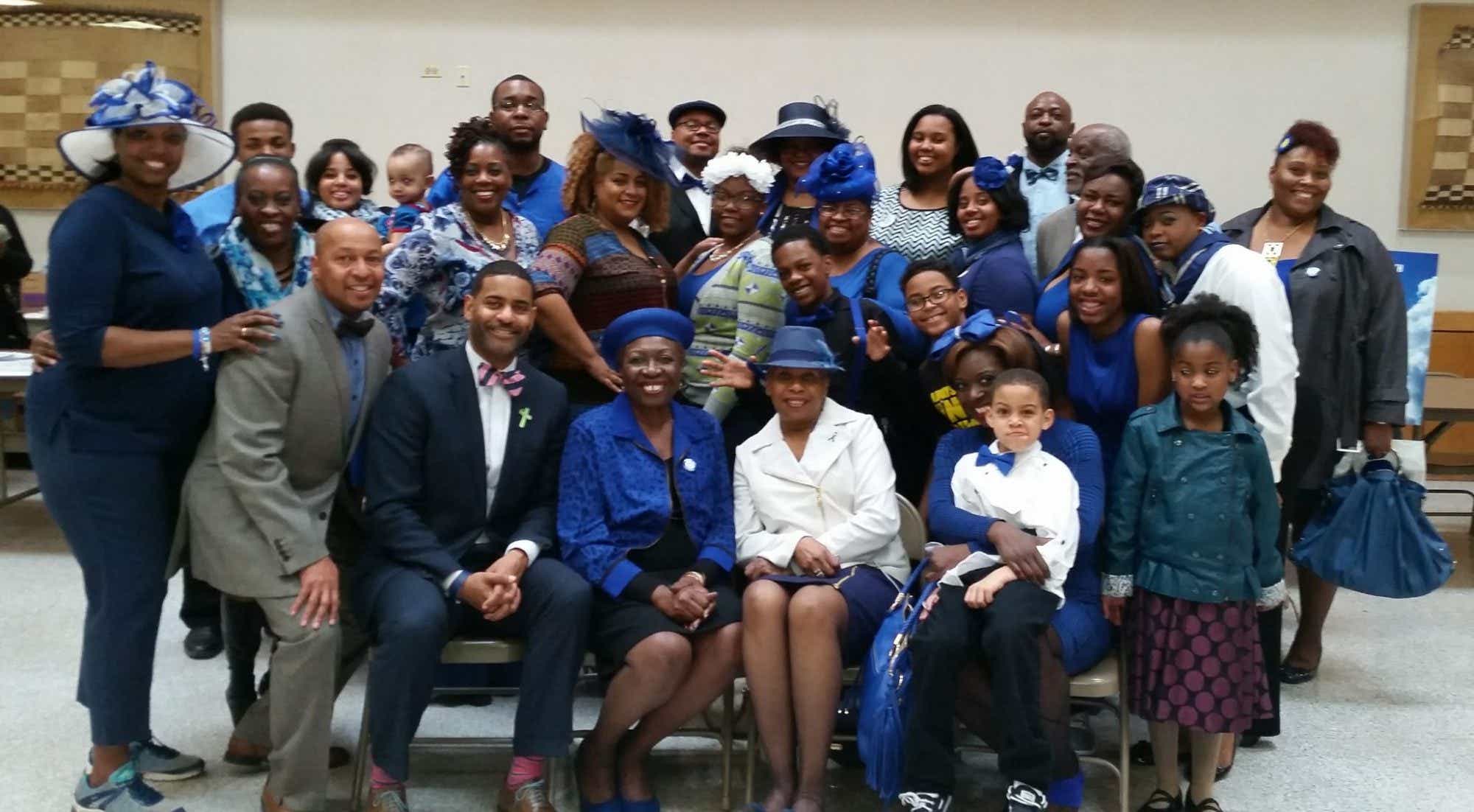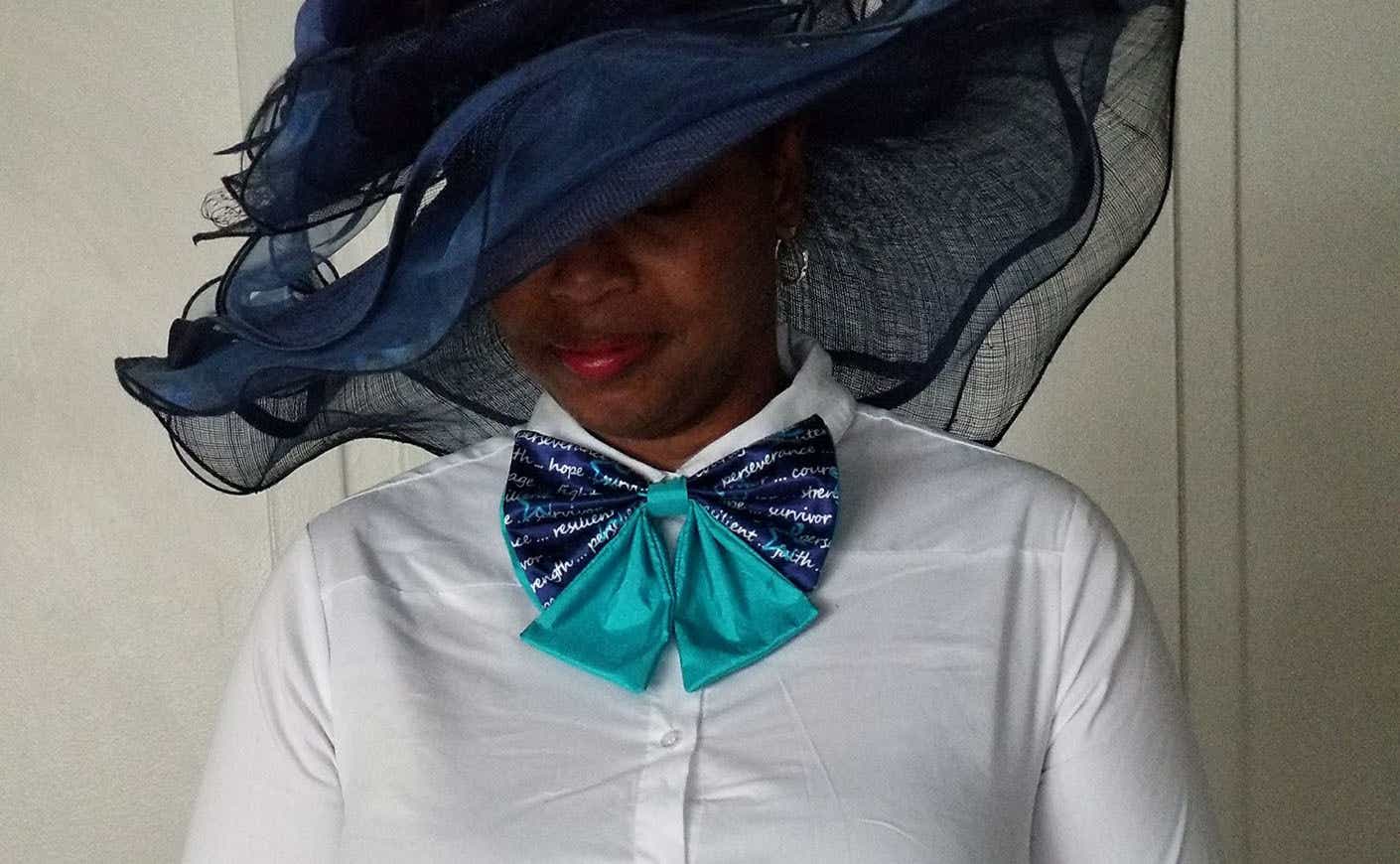At age 34, Candace Henley was in excellent health. It was 2003, and Candace, a single mother to five young girls, was working as a bus driver and training for her first bodybuilding competition. It was around this time that she started experiencing gastrointestinal issues. “I was at a cousin’s bridal shower, and I hadn’t had a bowel movement in over two weeks. I could barely stand up,” Candace explains. She went to the emergency room where she was given a laxative and sent on her way. “I feel like they just saw a young Black woman, and they alleviated my symptoms. They didn’t care to look further, or tell me to follow up with my doctor. So I didn’t.”

We know now that colorectal cancer is on the rise within younger populations. But back in 2003, according to Dr. Durado Brooks, Deputy Chief Medical Officer of Screening for Exact Sciences, “There wasn’t any real level of attention about the rise in early onset disease. It’s really only been recognized within the colorectal cancer community in maybe the last decade… that’s when these trends have been documented and explored more extensively.”
Regardless of age, it is not unusual for women of color, and particularly Black women, to face alarming inequity when it comes to healthcare. Today, Black women are two to three times more likely to die in childbirth than White women in the United States. Monica Rose McLemore, an Associate Professor of Family Health Nursing at the University of California, San Francisco, recently told Katie Couric she believes there is a disturbing implication to this disparity: “Black death during pregnancy… tells us where our priorities are. It tells us that again, we don't listen to or believe Black women… We don't value Black women. It’s because our lives aren't worth saving to some people.”
Candace ended up taking two more trips to the emergency room for the same issue, and was told that because she had a history of endometriosis, she should see an OBGYN. According to Candace, “African American women have a very high rate of birth related issues, so they just assumed that’s what this was. They never investigated anything else. They never focused on the gastrointestinal issues at all. They explained to me that I had lost a lot of blood, and my history of OB issues was probably the reason. And I believed them.” Doctor’s concluded that Candace’s GI symptoms were most likely associated with her history of OB issues and recommended removing Candace’s uterus and ovaries. After the surgery, her GI symptoms got worse.
According to Dr. Brooks, “It would have been very unusual in 2003 for any clinician to have listened to her symptoms, and knowing her history of gynecologic issues, to have considered colorectal cancer as a diagnosis. Now unfortunately, Candace’s story is still being repeated today, even though we do have this new knowledge and understanding about the striking increase in colorectal cancer in younger people. Colorectal cancer should be considered in anyone who presents today with symptoms like Candace– especially before progressing with something as aggressive as surgical removal of the uterus and ovaries.”
The toll of Candace’s continued symptoms on her mental and physical health was massive: “It was psychologically draining. You know there's something wrong with you, but every time you're trying to tell someone this is happening, they're not listening. And you don't exactly know what the problem is, so you’ll cling to any bit of information that you’re given, even if it feels wrong. At the time I was trying to take care of five children. My job was on the line. Not being listened to for that long… I lost my whole identity.”
Four months after her hysterectomy, Candace returned to the ER because she began vomiting uncontrollably. “This time, I talked to my primary care doctor, and he told me to have the ER doctor call him, because he was concerned. He knew they would just see a young Black woman, and so they would treat my basic symptoms and send me home.” Candace was given a FIT test, which detects blood in the stool. Once it was determined that Candace indeed had colon cancer, she was given emergency surgery, where doctors removed a large tumor on the right side of her colon. Surgeons also performed a colectomy, during which they removed her entire large intestine and resected it to her small intestine. Candace was 35 years old.
When Candace was released from the hospital, she felt completely overwhelmed. “I didn't have patient navigation, no one followed up with me after surgery. No one called me to check and see if I was okay. I didn't have social services. I didn't have any access to information that said ‘this is what you do after having colon cancer.’ The parting advice I got from the nurse was ‘no anal sex.’”
Candace is one of millions of Americans who slipped through the cracks in our healthcare system through a lack of support and attention. In a conversation with Katie Couric, Olympic sprinter Allyson Felix describes this same lack of information and communication in the aftermath of her traumatic childbirth: ”I wasn't told what to look out for, I wasn't told that I was at risk, and so that's something that I wish had gone differently… Just being a Black woman, that made me at risk, and that is something that I didn't understand before.” We now know that Black women are at an increased risk of pregnancy complications, colorectal cancer, and a number of other potentially fatal conditions.
Even armed with the knowledge of these increased risks, studies as recently as 2016 have shown that some White medical students and residents assess and treat Black and White patients differently based on falsely perceived biological differences. In a real world context, this means that if a Black patient tells a White doctor that he or she is in a lot of pain, that doctor is less likely to believe the Black patient than they would be to believe a White patient.
When Candace was released from the hospital, she tried to do some research of her own about what had just happened to her, but found that most of the available information on colorectal cancer was targeted to elderly people. “I also kept reading, African-Americans have the highest rates of death from colon cancer. I thought, ‘Does anyone actually survive this disease?’”
Since Candace could no longer work, she ended up losing her home. “The worst part was feeling like I was failing my children. I had worked so hard to provide this great life for them, and then suddenly it was taken away. I felt guilty for getting sick. The disability pay for my job at the time was only $184. I had a $990 mortgage, and I had five children. But I also knew that I had life insurance, and I had some retirement savings, so I knew that between those things, my children would be taken care of. I didn’t want them to watch me slowly die of cancer. They had already endured so much.”
The physical and psychological toll Candace endured led her to attempt suicide, and she ended up in a psychiatric ward. It was there that she met a nurse who changed her life. “She was the only person that listened to me. Everybody else was so busy. They were so afraid to talk to me. I looked like death when I got out of the hospital. Everybody thought I was dying, and it is hard to know what to say to somebody who's going through that. I had no one that I could talk to about how I was feeling. I was too busy trying to comfort everybody else and letting them know that I was okay. And I really wasn't.” The nurse listened to Candace’s story. She told her to take whatever time she had left as a gift, and to make more memories with her daughters.
It was an uphill battle, but Candace’s health started to improve. As she healed, she started trying to make sense of what had happened to her, and to figure out how to spare other people the pain she had experienced. “I thought to myself, ‘who's doing minority outreach to make people aware of this disease?’ I kept getting told ‘well, we don't have funding.’” She decided to take matters into her own hands.
Candace and her family all began attending church in bright blue outfits and fancy blue hats to spark conversation about her being a colon cancer survivor. Her pastor took notice, and that’s how The Blue Hat Foundation was born. “There is a long history of mistrust among African Americans within the medical community,” Candace says, “and with good reason. But I trust my pastor.” The Blue Hat Foundation provides free screenings and resources for minority and medically underserved communities through their churches. “The church is responsible for your overall wellbeing— your spiritual health, your mental health, and your physical health. A lot of church members don't have insurance, so they won't go to the doctor. We provide free screenings and healthcare through the church where people feel comfortable— where they know their pastor wouldn’t bring someone in who would harm them.” The Blue Hat Foundation is celebrating their 10th anniversary this year, and serves 15 churches in the Chicago area.

In the years since her diagnosis, Candace has taken her health into her own hands and become a colorectal cancer expert. Her first priority was making sure her five daughters were screened for the disease. According to Dr. Lisa Ravindra, Board Certified Internal Medicine Physician and Assistant Professor of Medicine at Rush University Medical Center in Chicago, “Usually the rule of thumb is to get screened 10 years before a first degree relative was diagnosed. So if a first degree relative, meaning either of your parents or a sibling, was diagnosed at age 45, you are high risk and should get screened at age 35.” Candace immediately made sure each of her five children would be screened as soon as they were eligible. Her twins are now in their mid- twenties and will have their first colonoscopies this year. Her two oldest daughters are in the military and are screened yearly. Both have already had polyps detected early and removed. When it comes to colorectal cancer detection, Candace has ensured that nobody in her family or any family she has touched through The Blue Hat Foundation will slip through the cracks again.
Written by Emily Pinto









